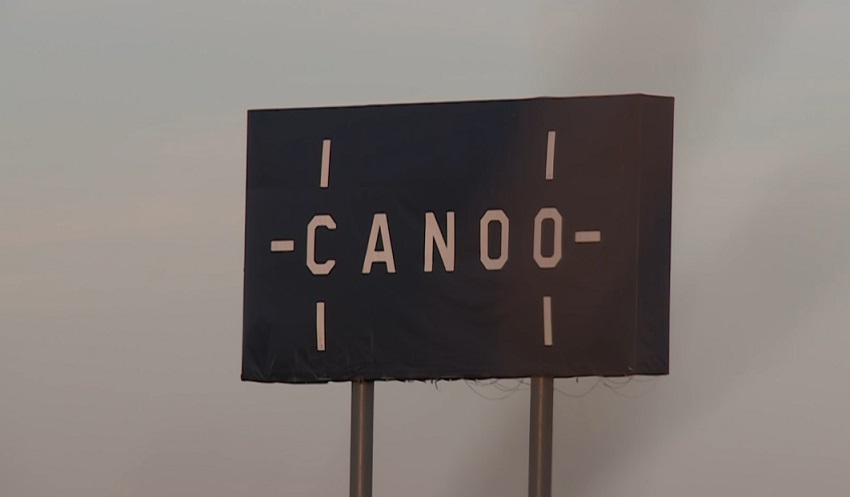Oklahoma City, OK – Former employees of the bankrupt electric vehicle manufacturer, Canoo, are speaking out about their ongoing struggles with unpaid wages, medical bills, and the company’s lavish spending during its final months. These employees allege that the company’s executives, particularly CEO Tony Aquila, prioritized luxury while leaving their workforce to face financial hardship after the company filed for Chapter 7 bankruptcy last month.
Canoo, which once promised to create jobs and make a generational impact in Oklahoma, entered the state with grandiose expectations. In 2022, Oklahoma Governor Kevin Stitt celebrated the company’s decision to set up manufacturing facilities in Oklahoma City and Pryor, securing a $300 million state-backed incentive package in the process. The company’s plans included creating 120 jobs at the Oklahoma City site and expanding to a workforce of 700 in the coming years.
Despite these ambitions, Canoo never fully realized its goals. After leasing a warehouse space in Oklahoma City, which was owned by CEO Tony Aquila’s other company, Canoo failed to begin vehicle production there. The company later furloughed employees and filed for bankruptcy in late 2024, leaving many workers questioning the decisions made by upper management in the months leading up to the company’s collapse.
Several former employees, speaking anonymously, have recounted their experience with Canoo and the financial struggles they faced. One former employee explained that, as signs of the company’s financial troubles became clear, workers offered to make personal sacrifices, including pay cuts, to keep the company afloat. However, those offers were reportedly dismissed by executives. The same employee pointed to extravagant spending, such as lavish office perks in Canoo’s Torrance facility, including espresso machines and free catered food, which seemed out of place given the company’s financial instability.
Another former employee claimed that Canoo spared no expense when hosting a Saudi Arabian prince and his family, even providing gifts and luxury experiences. “We had engineers staying at the Saudi Arabian castle with the prince for a month,” the former employee said. “When these people came for a tour of OKC, they bought an Xbox and filled Tony’s office with things to keep him busy.”
As the company continued to mismanage funds, former employees began to face significant financial issues. Medical bills began to pile up, as many workers received bills for appointments they attended while still employed, despite being promised medical coverage through the company’s insurance plan. One former employee is now facing a $3,500 medical bill for an appointment they had months ago, and they are left wondering whether Canoo ever paid the premiums to the insurance provider.
Despite the claims of unpaid wages and benefits, including reimbursements for insurance premiums deducted from their paychecks, legal experts warn that the employees’ chances of recovering any of the owed money are slim. With Canoo’s bankruptcy filing listing less than $50,000 in assets, employees may be left with little to no recourse. According to Oklahoma City-based attorney Ed Blau, former employees could attempt to sue for what remains of Canoo’s assets, but given the company’s financial position, this might be a futile effort.
“The company is now an LLC, which means the executives are protected from personal liability,” Blau explained. “It’s going to be very difficult for employees to get compensation.”
Moreover, some of Canoo’s international employees, who were recruited to relocate to Oklahoma from overseas on work visas, are facing additional challenges. Many of these employees were furloughed shortly after relocating, making them ineligible for unemployment benefits in both Oklahoma and their home countries. With visas tied to their employment status, these workers now find themselves in a precarious position, uncertain of their next steps.
For many former employees, the final months at Canoo have left a lasting impression on their view of corporate life in America. “We uprooted our whole lives for this dream, and it was all in vain,” one said. The frustration stems not only from financial loss but from what they perceive as corporate greed and a lack of accountability from those at the top.
As the company’s bankruptcy proceedings continue, these employees are left with little hope of seeing their full paychecks or getting the medical benefits they were promised. However, they are resolute in their desire to see accountability from Aquila and Canoo leadership.
“I think Tony should step up and take care of the people that took care of him,” said one former employee. “They really should make good on it. They owe it to the people who worked so hard for them.”
The employees’ experiences have caused them to reflect on the definition of the “American Dream” in today’s corporate landscape. For them, the dream has become a cautionary tale of broken promises and the harsh reality faced by workers when a company fails.

